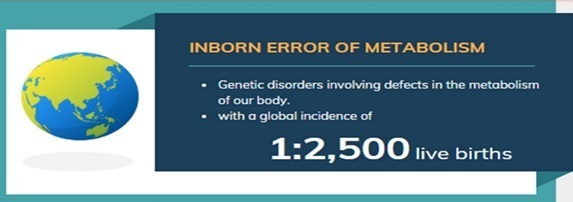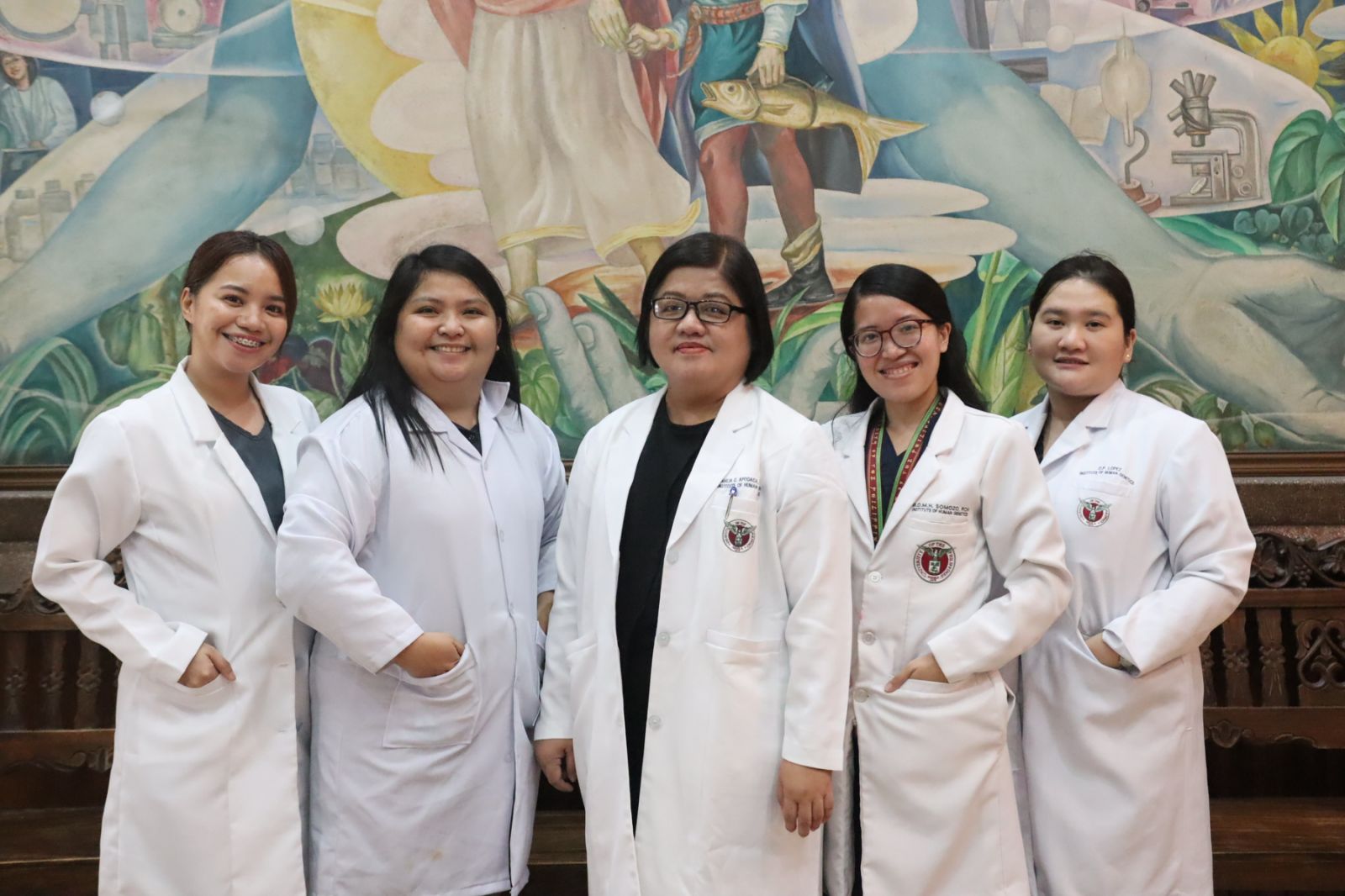- The Biochemical Genetics Laboratory is a specialized laboratory and one of its kind in the Philippines which provides biochemical testing and results interpretation for the diagnosis, study and clinical management of inborn errors of metabolism.
- This laboratory is a unit of the Institute of Human Genetics, National Institutes of Health, University of the Philippines-Manila.
- We offer plasma, urine and cerebrospinal fluid (CSF) analytical services required for the diagnosis and monitoring of a wide range of Inborn errors of metabolism (IEM).
- Analytical services for research purpose may also be provided by the laboratory.
- What are Inborn Errors of Metabolism
- IEMs are rare genetic (inherited) disorders in which the body cannot properly convert food into energy due to defects in specific proteins or enzymes that help break down parts of food.
- For 2021, BGL has logged a total of 56 IEM cases among Filipino newborns.

- LOCAL TESTS OFFERRED AT BGL
- In partnership with other International Laboratories, Biochemical Genetics Laboratory has been sending samples for the following tests:
- DNA Analysis of 6-Pyruvoyl Tetrahydropterin Synthase Deficient Hyperphenylalaninemia and Urine Pterins (c/o the Department of Newborn Screening Center, The Chinese Foundation of Health (Taipei, Taiwan);
- DNA Analysis of 6-Pyruvoyl Tetrahydropterin Synthase Deficient Hyperphenylalaninemia and Urine Pterins + DHPR (c/o the Department of Newborn Screening Center, The Chinese Foundation of Health (Taipei, Taiwan);
- DNA Analysis of 6-Pyruvoyl Tetrahydropterin Synthase Deficient Hyperphenylalaninemia and Urine Pterins with DHPR (BH4 loading) (c/o the Department of Newborn Screening Center, The Chinese Foundation of Health (Taipei, Taiwan);
- Very long-chain fatty acid test for X-Linked Adrenoleukodystrophy (c/o Kennedy Krieger Institute, Peroxisomal Laboratory (Baltimore, USA))
- Dried Blood Spot for the screening of Lysosomal Storage Disorders (LSD (specifically, Fabry disease, Pompe disease, Gaucher disease, Niemann-Pick type A/B disease, MPS I, and MPS II)) (c/o National Taiwan University Hospital (NTUH), Taiwan)
Publications
- Esphie Grace D. Fodra, Judy S. Manliguis, Cristine P. Lopez, Mary Anne D. Chiong (2016) Biochemical Findings in the first Filipino Child confirmed to have Nonketotic hyperglycinemia. Acta Medica Philippina. 50 (2); 99-103.
- Esphie Grace F. Fojas, Judy S. Manliguis, Cristine P. Lopez, Sheryl V. Decena, Kathleen Gayl D. Fonacier and Mary Anne D. Chiong (2017). A Review of the Results of the Very Long Chain Fatty Acid Analyses for X-linked Adrenoleukodystrophy at the Biochemical Genetics Laboratory of the Institute of Human Genetics-National Institutes of Health, Manila. Acta Medica Philippina. 51 (3); 223-227.
- Cristine P. Lopez, Sheryl V. Decena, Kathleen Gayl D. Fonacier and Mary Anne D. Chiong. (2017) L-2-Hydroxyglutaric Aciduria – a Rare Type of Organic Aciduria Presenting as Seizures and Developmental Delay in a Filipino Child. Acta Medica Philippina. Genetics, 51(3); 259-262.
- Poster Presentations during the 35th Philippine Chemistry Congress
- Sheryl V. Decena, Cristine P. Lopez, Mary Anne D. Chiong and Dahlia C. Apodaca. Plasma Acyl Carnitine Profile of Filipino Patients diagnosed with Fatty Acid Oxidation as determined using ESI Tandem LC-MS/MS: A Retrospective Study. Book of Abstracts, 2021, p. 83.
- Vivien Ann A. Juarez, Sheryl V. Decena, Cristine P. Lopez, and Dahlia C. Apodaca. The Impact Of Covid-19 Pandemic On The Conduct Of Confirmatory Biochemical Testing For The Diagnosis Of Inborn Errors Of Metabolism: A Philippine Perspective. Book of Abstracts, 2021, p. 87.
- List of programs/projects/studies we are supporting through the performance of analytical tests.
- RA 9288 or the Newborn Screening Act of 2004
- Newborn Screening Reference Center (NSRC)-funded projects
- Plasma carnitine levels of Filipino Patients with maple syrup urine disease and classical phenylketonuria on protein-restricted diets and their correlation with a marker of lipid peroxidation infants
- Screening for maternal carnitine transport defect and 3-methylcrotonyl-CoA carboxylase deficiency following a positive screen in their newborn infants.
|





